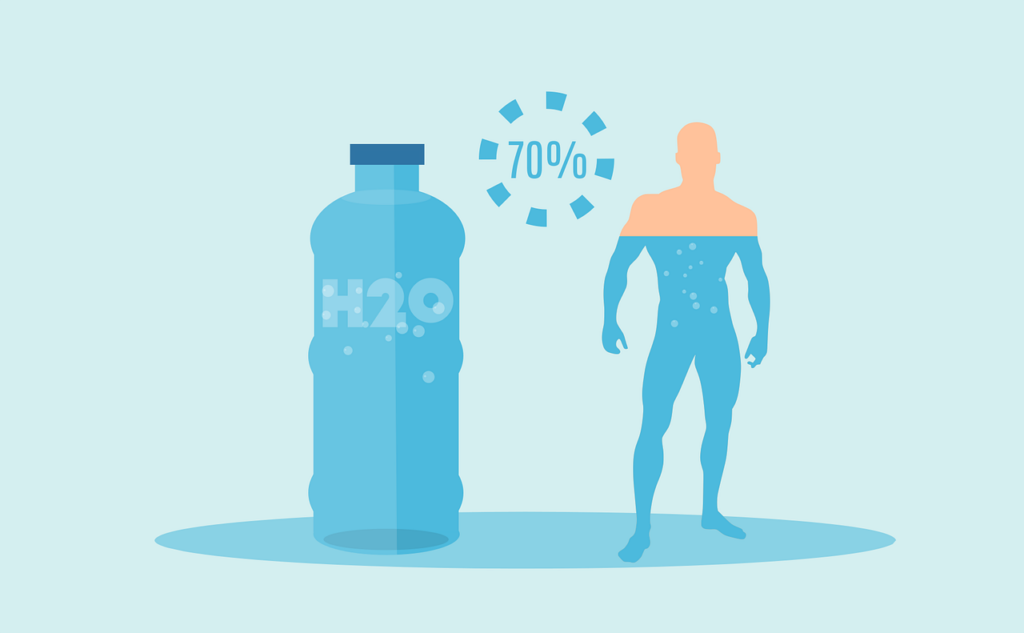Are you tired of dealing with the uncomfortable symptoms of acid reflux? Well, we’ve got some good news for you! In this article, we’ll be sharing some helpful hydration hacks that can not only help you stay refreshed and hydrated but also manage your acid reflux symptoms. By incorporating these simple tips into your daily routine, you’ll be able to find relief and enjoy a more comfortable lifestyle. So, let’s get started on this journey to better hydration and bid farewell to acid reflux woes!

This image is property of pixabay.com.
Understanding Acid Reflux
What is Acid Reflux?
Acid reflux, also known as gastroesophageal reflux disease (GERD), is a condition that occurs when acid from the stomach flows back up into the esophagus. The lower esophageal sphincter (LES), a ring of muscle at the bottom of the esophagus, usually acts as a barrier to prevent stomach acid from entering the esophagus. However, in individuals with acid reflux, the LES may not function properly, leading to the backflow of acid. This can cause a range of uncomfortable symptoms which we will explore later in this article.
Causes of Acid Reflux
Acid reflux can have numerous causes, including lifestyle factors, diet choices, and certain medical conditions. Some common causes of acid reflux include:
- Obesity: Excess weight can put pressure on the stomach, pushing acid back up into the esophagus.
- Certain Foods: Spicy foods, fatty foods, chocolate, citrus fruits, tomatoes, and onions are known to trigger acid reflux symptoms in many individuals.
- Smoking: Smoking weakens the LES, making it easier for stomach acid to reflux into the esophagus.
- Pregnancy: Hormonal changes during pregnancy can relax the LES, leading to acid reflux symptoms.
- Hiatal Hernia: A hiatal hernia occurs when part of the stomach pushes up into the chest through the diaphragm, disrupting the normal function of the LES.
Symptoms of Acid Reflux
The symptoms of acid reflux can vary from person to person, but some common signs include:
- Heartburn: A burning sensation in the chest, often after eating or at night.
- Regurgitation: Sour or bitter-tasting acid backing up into the throat or mouth.
- Dysphagia: Difficulty or pain while swallowing.
- Burping or Belching: Excessive burping or belching, especially after meals.
- Nausea or Vomiting: Some individuals with acid reflux may experience occasional nausea or vomiting.
- Coughing or Wheezing: Chronic coughing or wheezing, especially at night, may be a symptom of acid reflux irritation in the lungs.
Importance of Hydration for Acid Reflux Management
Effects of Dehydration on Acid Reflux
Dehydration can have a significant impact on acid reflux symptoms. When the body is dehydrated, it produces less saliva, which is essential for neutralizing stomach acid and maintaining a healthy pH balance in the esophagus. Additionally, inadequate hydration can lead to decreased mucous production in the digestive tract, making the esophagus more susceptible to irritation from acid reflux.
Benefits of Proper Hydration for Acid Reflux Management
Proper hydration plays a crucial role in managing acid reflux and can provide the following benefits:
- Improved Digestion: Drinking an adequate amount of water helps with digestion, preventing food from sitting in the stomach for prolonged periods, which can exacerbate acid reflux symptoms.
- Relief from Heartburn: Water can help dilute stomach acid, providing temporary relief from heartburn symptoms.
- Mucous Production: Staying hydrated supports the production of mucous in the digestive tract, which acts as a protective barrier against acid damage.
- Overall Well-being: Maintaining proper hydration levels promotes overall health and well-being, which can help reduce the frequency and severity of acid reflux symptoms.
Recommended Daily Water Intake for Acid Reflux Patients
It is essential for acid reflux patients to ensure they are drinking enough water to stay well-hydrated. The general recommendation for daily water intake is eight 8-ounce glasses, which equals about 2 liters or half a gallon. However, individual needs may vary based on factors such as age, weight, activity level, and climate. It is advisable to consult with a healthcare professional to determine the optimal daily water intake for managing acid reflux.

This image is property of pixabay.com.
Hydration Hacks for Acid Reflux Patients
1. Drink Water Before and After Meals
To aid digestion and minimize the risk of acid reflux, make it a habit to drink a glass of water around 30 minutes before each meal. This helps prepare the stomach for digestion and can help prevent excessive acid production. Additionally, drinking water after a meal can help wash down any remaining particles of food and dilute stomach acid.
2. Opt for Alkaline Water
Consider drinking alkaline water, which has a higher pH level than regular tap water. Alkaline water can help neutralize excess stomach acid and provide relief from acid reflux symptoms. You can purchase alkaline water from stores or invest in a water ionizer to create alkaline water at home.
3. Add Natural Flavor to Water
If plain water seems boring, add a slice of lemon, lime, or cucumber to infuse natural flavor into your drink. These additions not only enhance the taste but can also provide additional health benefits. Lemon and lime are alkaline-forming fruits, and cucumber contains high water content, contributing to hydration.
4. Sip Water Throughout the Day
Instead of gulping large amounts of water at once, sip water throughout the day to maintain hydration levels. This approach helps prevent overfilling the stomach and reduces the risk of triggering acid reflux symptoms. Keeping a water bottle nearby or setting reminders can help remind you to stay hydrated.
5. Use a Straw to Drink Fluids
Using a straw to drink fluids can help minimize the contact of acidic drinks with your teeth and esophagus. This can be particularly useful if you enjoy acidic beverages such as citrus juices or carbonated drinks. By bypassing direct contact with your teeth, you can reduce the risk of dental erosion and acid reflux irritation.
6. Avoid Carbonated Drinks
Carbonated drinks, including soda and sparkling water, can contribute to acid reflux symptoms due to the release of carbon dioxide gas. This can cause bloating and increase the pressure on the LES, leading to the backflow of stomach acid. Opt for still water or non-carbonated beverages to minimize the risk of exacerbating acid reflux.
7. Limit Caffeine Intake
Caffeine is known to relax the LES and increase the production of stomach acid, making it a common trigger for acid reflux symptoms. It is advisable to limit or avoid caffeine-containing beverages such as coffee, tea, and energy drinks. If you crave a warm beverage, consider herbal teas that are non-acidic and can offer a soothing effect.
8. Monitor Your Water Intake
Keeping track of your daily water intake can help ensure you are meeting your hydration needs. You can use a water tracking app or simply keep a water journal to record the amount of water you consume throughout the day. This can be especially helpful for acid reflux patients who need to be conscious of their hydration habits for improved symptom management.
9. Include Hydrating Foods in Your Diet
In addition to drinking water, incorporating hydrating foods into your diet can support overall hydration. Foods with a high water content include fruits like watermelon, strawberries, and oranges, as well as vegetables like cucumbers and lettuce. Adding these foods to your meals and snacks can contribute to your daily water intake and help alleviate acid reflux symptoms.
10. Create a Hydration Schedule
Establishing a hydration schedule can help you develop a consistent routine for drinking water throughout the day. Set specific times for consuming water, such as upon waking up, before meals, during breaks, and before bedtime. By following a schedule, you can ensure you stay on track with your hydration goals and manage your acid reflux symptoms effectively.
In conclusion, understanding acid reflux is crucial for managing its symptoms effectively. Proper hydration plays a significant role in acid reflux management, as dehydration can exacerbate symptoms and lead to further discomfort. By incorporating hydration hacks into your daily routine such as drinking water before and after meals or opting for alkaline water, you can support your overall well-being and improve your acid reflux symptoms. Remember to monitor your water intake, include hydrating foods in your diet, and create a hydration schedule to ensure you stay adequately hydrated. Always consult with a healthcare professional for personalized advice and guidance on managing acid reflux. So stay watered, stay hydrated, and take control of your acid reflux management today!

This image is property of pixabay.com.
